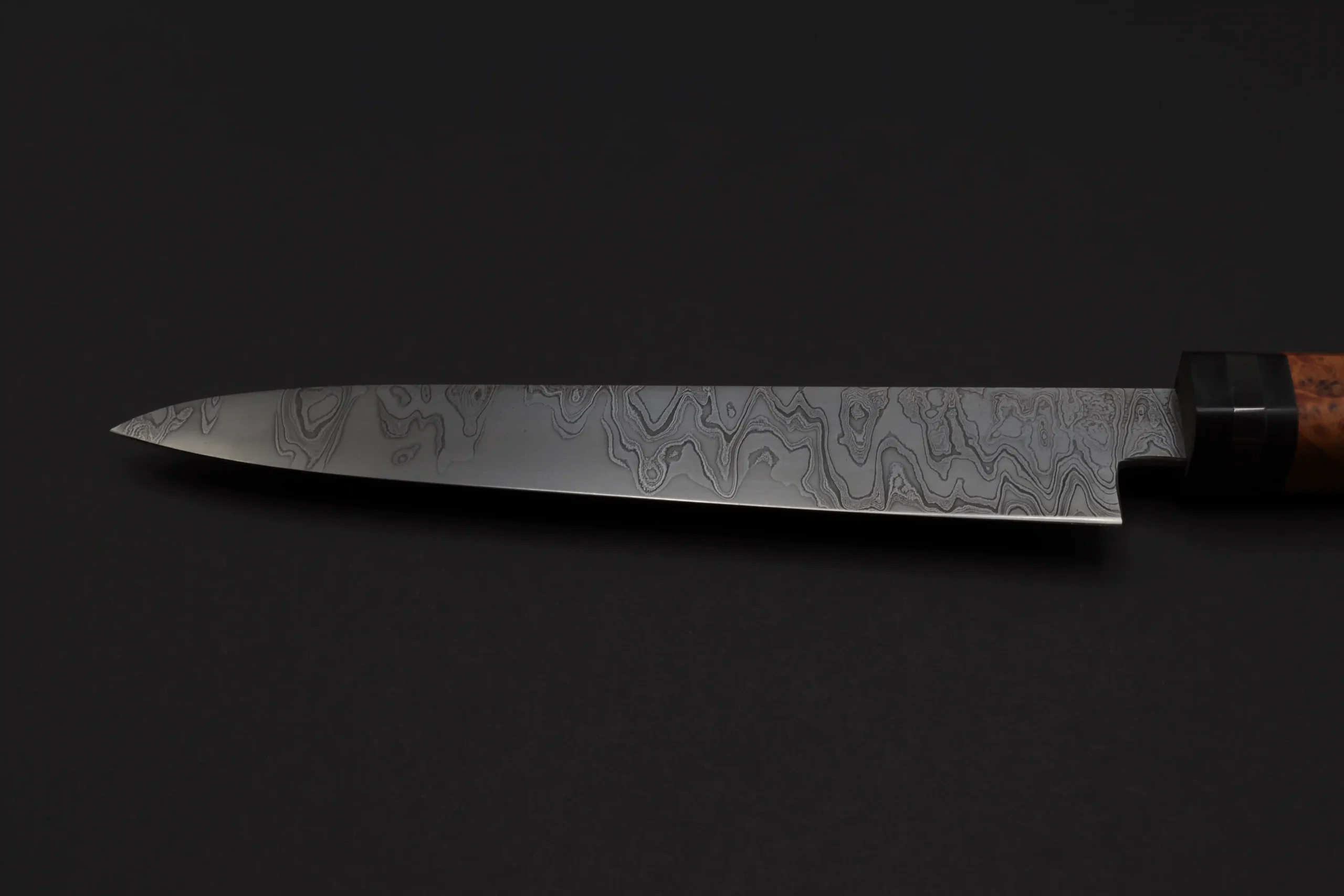
Taking care of your knives is essential to maintain their longevity and performance. Whether you are a professional chef or a home cook, proper maintenance of your knives can make a significant difference in the quality of your culinary experiences. In this blog post, we will explore some easy-to-follow guidelines to ensure your knives stay in excellent condition.
The first step in knife maintenance is to understand the type of steel your knife is made of. Knives generally fall into two main categories: stainless steel and carbon steel. Here are some common types of steel you might encounter:
Stainless steel knives are generally easier to maintain than knives made of carbon steel because of their resistance to staining. Still, they are not completely stain-proof. Avoid exposure to highly acidic substances such as lemon juice, as prolonged contact can lead to staining. Regular cleaning and drying are essential to keep stainless steel knives in good condition.
Carbon steel knives are more likely to stain than their stainless steel counterparts. To avoid rust and stains, keep your carbon steel knife clean and dry. Avoid prolonged immersion in water. If you plan to store the knife for an extended period, wipe the blade with a neutral oil to protect it from moisture.
Knife handles are made of different materials, and while many are treated to be water-resistant, it is best to avoid prolonged exposure to water. Wooden handles, in particular, benefit from occasional oiling. You can find suitable oils for this in our online shop, so that your handles stay in excellent condition.
Never, under any circumstances, place your knife in the dishwasher. This will damage the blade beyond repair. Even stainless steel knives should be washed by hand. When you receive a new knife from us, it comes with a coating of industrial food-safe oil. Before using it, gently wash and dry the knife to remove this coating.
Choosing the right cutting board is just as important as taking care of your knives. Avoid using boards made of materials harder than the blade, such as glass or stone, as they can quickly blunt your knife. Opt for softer materials such as wood or plastic, and remember to clean and maintain your cutting board regularly.
By following these simple guidelines, you can ensure that your knives are sharp, stain-free and ready for any culinary challenge. Good knife maintenance not only improves their performance but also extends their lifespan, making it a worthwhile investment for any cooking enthusiast.
Have fun cutting!